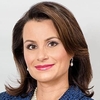Welcome to BARBRI, the trusted global leader in legal education. Continue to access the same expert-led Strafford CLE and CPE webinars you know and value. Plus, explore professional skills courses and more.
About the Course
Introduction
This CLE webinar will guide patent counsel on means-plus-function (MPF) claims and antibody patents. The panel will discuss the benefits and risks of using MPF in the context of antibodies. The panel will offer best practices to overcome the challenges of MPF claims and leverage 112(f) and functional claims for maximum patent protection.
Description
The global antibodies market in 2021 was valued at $230 billion and is expected to grow to over $850 billion by 2030. As a result, antibody U.S. patents are some of the most valuable patents. However, as a result of recent decisions, these U.S. patents are vulnerable to being struck down. Nearly all technological fields use means-plus-function (MPF) claiming. MPF claims, often perceived as narrow, may more protection for U.S. antibody patent applicants than other types of more traditional claims.
MPF claiming allows for claims to define at least part of the invention as a means for function, with, as a best practice, linking the means to structure, materials, or acts in the specification for defining the “means for” aspect of the claim to the linked information to cover both the linked information and statutory literal equivalents thereof. Such claiming may permit counsel to link to that information without any issue of whether or not Festo precludes literal infringement.
In our experience, MPF claims, often best presented in a separate U.S. patent application, provide another nonexclusive tool for strong U.S. patent coverage. Counsel should take care to make complete linking to the specification to lessen the risk that, by failure to adequately identify the linked structure, materials, or acts in the specification corresponding to the claimed function under a 112(f) scenario may result in an invalidated indefinite claim under 112(b) or 112(a) problems.
Listen as our authoritative panel of patent attorneys examines MPF claims and antibody patents. The panel will discuss the benefits and risks of using MPF. The panel will offer their experiences and best practices to overcome the challenges of MPF claims and leverage 112(f) and functional claims for maximum patent protection.
Presented By

Ms. Brougher is a patent attorney who focuses on all aspects of services related to patents in the areas of biotechnology, pharmaceuticals and medical devices, including patentability opinions, due diligence, patent drafting, domestic and foreign patent prosecution, development and management of patent portfolios, and general client counseling during all phases of a product’s lifecycle, from concept to commercialization.
Her patent experience covers a variety of complex and innovative inventions involving small molecule drugs, biologics, cell-based technologies, compositions, drug formulations and drug delivery systems, immunotherapeutics, medical devices, diagnostic tests, nanotechnology, and immunology, particularly vaccines and antibodies. Ms. Brougher also has experience counseling clients on the Hatch-Waxman Act and is monitoring developments involving biosimilars under the Biologics Price Competition and Innovation Act.

Dr. Carter specializes in worldwide patent prosecution, focusing on complex patentability cases, as well as assisting with contractual issues and providing technical support for intellectual property litigation. She has in depth expertise in a broad spectrum of chemical and biological science areas, including small molecule pharmaceuticals, particularly in the area of infectious disease and is an expert in nucleic acid chemistry. Dr. Carter’s practice includes multiple years negotiating license deals between academic institutions and big pharma, both in U.S. and abroad, as well as negotiating license deals between small biotech companies and big pharma. She also managed large in-licensed portfolios and provided IP support for research and license collaborations. Dr. Carter also has years of expertise in providing FTO analysis and due diligence investigations. Prior to joining the firm, Dr. Carter served for over 10 years as Assistant General Counsel in Global Patents at GlaxoSmithKline.

Mr. Irving has 47 years of experience in the field of IP law. His practice includes due diligence, patent prosecution, reissue and reexamination, patent interferences, and counseling, including prelitigation, Orange Book listings of patents covering FDA-approved drugs, and infringement and validity analysis in the chemical fields, as well as litigation. He has served as lead counsel in many patent interferences.

Dr. Murphy focuses her practice on client counseling and patent prosecution for a range of clients. She prepares new patent applications, prosecutes U.S. and foreign applications, and represents applicants at appeals and oral hearings before the PTAB. She has experience in prosecuting inter partes and ex partes reexamination applications, reissue applications, and patent term extension applications for approved pharmaceuticals, including obtaining supplemental protection certificates in Europe.

Ms. O’Brien has more than 20 years of experience representing domestic and foreign clients of all sizes in patent procurement, litigation, and client counseling, with a particular emphasis on chemical, biochemical, and pharmaceutical technologies. Exemplary areas of her technical expertise include polymer chemistry; ceramics; glass; food chemistry; cosmetics; paper products; adhesives; and pharmaceutical products, including new chemical entities and formulations and novel solid forms, including polymorphs, cocrystals, and amorphous forms of compounds.
-
This 90-minute webinar is eligible in most states for 1.5 CLE credits.
-
Live Online
On Demand
Date + Time
- event
Thursday, September 14, 2023
- schedule
1:00 p.m. ET./10:00 a.m. PT
- Use of MPF claims with antibody patents
- Benefits of using MPF claims, particularly to avoid/overcome an adverse decision at PTAB or in the courts.
- Challenges/limits with applying MPF claims
- Functional claims
- Best practices for preparing, defending, and enforcing MPF claims
The panel will review these and other noteworthy issues:
- What are the possibilities for MPF claims in antibody patents?
- What are the benefits and limitations of using MPF patent claims for antibody patents?
Unlimited access to premium CLE courses:
- Annual access
- Available live and on-demand
- Best for attorneys and legal professionals
Unlimited access to premium CPE courses.:
- Annual access
- Available live and on-demand
- Best for CPAs and tax professionals
Unlimited access to premium CLE, CPE, Professional Skills and Practice-Ready courses.:
- Annual access
- Available live and on-demand
- Best for legal, accounting, and tax professionals
Unlimited access to Professional Skills and Practice-Ready courses:
- Annual access
- Available on-demand
- Best for new attorneys
Related Courses

EU Unitary Patent System and UPC: Recent Decisions and Developments
Tuesday, April 7, 2026
1:00 PM ET/10:00 AM PT

Pleading Requirements for Patent Infringement Amid Inconsistent Court Treatment
Available On-Demand



